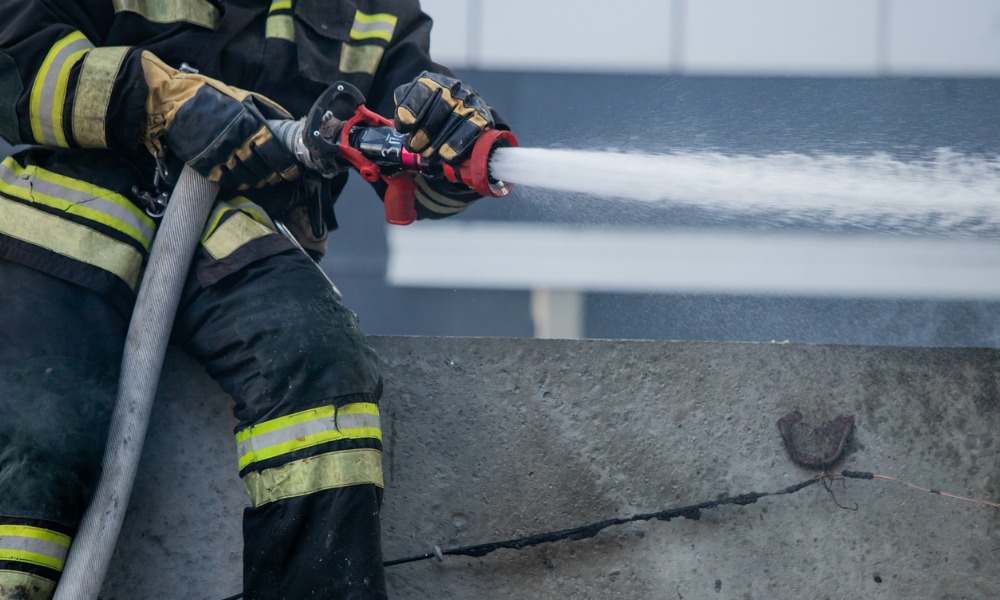Exposures from the job were 'dominant cause that led to this tragedy,' says union president

In a significant decision, the Workers Compensation Board of Manitoba has accepted a claim regarding the death of Winnipeg firefighter Preston Heinbigner, who took his own life earlier this year.
This acceptance, as announced by the city's firefighters' union, entitles Heinbigner's family to financial benefits and counseling, said the CBC.
Tom Bilous, president of the United Firefighters of Winnipeg, described the decision as a "vindication" for those who knew Heinbigner.
“There was never any question that the exposures from the job were… the dominant cause that led to this tragedy,” Bilous stated.
"When you have compassion, empathy and those soft skills, it not only makes you a great human, a great first responder and firefighter, but it can be a blessing and a curse.
"And I think that's what we had here with Preston, one of the kindest individuals you'll ever meet. And nobody fully realized how much he was carrying with him until it was too late."
Firefighter death attributed to PTSD
Heinbigner, 40, passed away on April 9, leaving behind his wife Shayda, a two-year-old son, and another child on the way. His death has been attributed to post-traumatic stress disorder (PTSD) stemming from his experiences on the job.
A memo obtained by CBC News from the firefighters' union revealed that the compensation board had accepted Heinbigner's claim.
The memo stated, "Not only does this decision properly acknowledge that it absolutely was the effects of Preston's exposures on the job as a firefighter that directly led to this tragedy," but "it also recognizes that mental health injuries can have the same causal connection as physical injuries causing an unfortunate workplace fatality."
Bilous emphasized that the ruling ensures Heinbigner's family will receive not only financial compensation and counseling but also educational scholarships for his children, according to the CBC. They can also apply for a federal grant program designed for families of first responders who die as a result of their duties.
“It gives us some solace knowing that the family, his young family, will be taken care of not only today, but well into the future,” Bilous said.
Mental health challenges of first responders
The decision also marks a "huge stride forward" in recognizing that the cumulative mental health effects faced by first responders are workplace injuries, said Cameron Abrey, past president of the Manitoba Association of Fire Chiefs.
“Nobody ever entered the career, or even in the role of a volunteer firefighter, nobody struck down that path with the thoughts of… having to deal with some of the things that they have to deal with,” he said in the CBC article, highlighting the often invisible nature of mental health injuries, comparing them to physical injuries that receive immediate medical attention.
Bilous said he hopes this decision will heighten awareness about the mental health risks firefighters face and lead to improved resources to prevent similar tragedies.
Increased support for first responder health
Following Heinbigner's death, Premier Wab Kinew promised increased support for first responders, including funding for three additional counselors for law enforcement, paramedics, and firefighters. Bilous acknowledged this as "one silver lining" from the tragedy, said the CBC.
Despite this progress, Abrey raised concerns about the adequacy of three counselors for the province's thousands of first responders.
“When we look at, you know, approximately 10,000 first responders in the province of Manitoba between all agencies, three really are still going to be completely overwhelmed with the issues that are out there,” he said in the article.
Data from the Winnipeg Fire Paramedic Service indicate a rise in psychological claims to the Workers Compensation Board of Manitoba among paramedics and fire paramedics, coinciding with an increase in service calls. The number of claims rose to 236 in 2021 from 132 in 2020, before slightly decreasing to 214 in 2022 and 201 in 2023.




